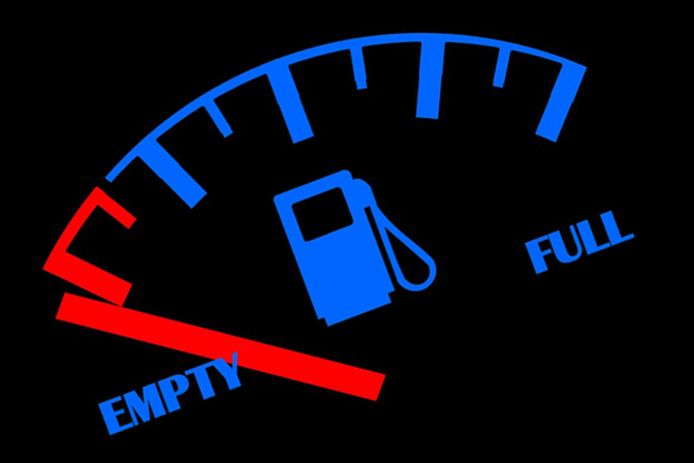Do you want to drive your car for as long as possible without costing you a lot of money for maintenance? By following a few simple rules laid out by British consumer website WhatCar? You will enjoy your vehicle for years to come. We give 20 tips in a row.
1. Choose your path carefully
This may sound a little far-fetched, but it isn’t. If you use a very bad road every day, this can be disastrous for your undercarriage. The consequence? Worn shock absorbers, bent rims and damaged tires. Detouring on such an unobstructed road can extend the life of shock absorbers by thousands of miles.
2. Use the brakes to brake
It sounds logical, but many motorists have a manual brake in the gearbox “on the engine”. This puts extra stress on the bearings, and shortens the life of gearbox components. So if you need to slow down, don’t use the engine brake, use the foot brake to lose speed.
3. Leave your air conditioner on
You probably know people who refuse to turn on their A/C because it “increases fuel consumption”. However, modern air conditioning systems are very efficient and by turning them off during the winter, for example, cause severe damage to seals and other components. So when you end up using it, chances are the system will leak or a major component will break and it will cost you more than you saved in fuel.
4. Take your foot off the clutch
If you have a manual transmission and you put your foot on the clutch pedal, the clutch will be partially engaged, causing it to wear out faster. It may seem like an obvious point, but don’t drive your foot on the clutch. It’s amazing how many people do it anyway.
5. Use your garage
Many people have a garage, but don’t use it to store their cars. They put in a lawn mower and other things. Storing your car prevents the car from rusting, the sun from bleaching the interior and the interior from getting too hot on sunny days – which is not good for your dashboard and interior.
6. Gassy, but in moderation
Today, all diesel engines must be equipped with a particulate filter. To prevent the filter from becoming clogged, you must lift it regularly to burn the filter clean. Gasoline engines also benefit from occasionally driving at higher engine speeds, as this prevents all kinds of residue from building up on parts of the engine.
7. A cold start? Better not
The engine suffers most in the first five minutes after starting it. A cold engine has little lubrication, because it is located at the bottom of the block and is thick. Therefore, wear is heavier with a cold engine, and this applies not only to winter. Before the engine gets warm, it is recommended to change gears at 2,500 rpm for the petrol engine and 2,000 rpm for the diesel engine. Better yet: bike for short distances if possible.
8. Refuel on time
If you are one of those people who regularly runs out of fuel, you risk damaging your fuel system. That’s because sediment tends to collect at the bottom of the tank, and if the engine is always running on fuel from the bottom of the tank, the pump, filter, and possibly even the injectors are likely to become clogged, resulting in high bills.

9. Start the engine in neutral
When starting the car, do not do it in gear with the clutch depressed. This places an additional load on the starting motor. It may sound trivial, but over the course of several years and thousands of startups, this can make more difference than you think.
10. Keep the paint clean
Some cars have plastic or aluminum panels, but most still have steel bodies. Rust can affect dirty cars more than clean ones, so wash your car regularly and wax the paint once in a while. Also useful: select “hot wax‘-to treat. These things get to places you can’t reach manually.

11. Watch out for breaking pebbles
A patch of paint that’s fallen off due to stone chips doesn’t look serious, but since rust can run its course here without hindrance, you’ll have a rotting hole in a few years. So be quick and touch up the damaged areas with a paint pen.
12. Choose rust prevention
If you have your car’s underbody and cavities professionally treated for rust, it will last longer. Examples of effective rust prevention are brands like Dinitrol or other types of wax.
13. Using synthetic oils
If there is one thing that will help extend the life of the gearbox, engine and differential, it is using clean oil. Mineral oils age much faster than synthetic alternatives. However, be careful if you have classics; Synthetic oils may be too thin for older components.

14. Protect your plastic
Plastics such as rubber bands, covers, and convertible surfaces should be protected from UV rays and dry out. There are special products for sale in the trade that act as both a lubricant and a protective agent. Applying a little bit every few months can go a long way in helping extend the life of your car’s seals.
15. Pay attention to your tire alignment
Even if a small portion of your tires are worn, the entire tire will be rejected. So make sure your tires are aligned properly. Sometimes the cause is worn rubber or track bars. Replacement is often relatively cheap and prevents uneven tire wear.

16. Oiling can be learned
Locks, hinges and joints dry out over time and then begin to wear out. Using a little three-in-one lubricant from time to time can make a huge difference in how long these parts last.
17. Check tire pressure
This seems obvious, but it is still a point that most people ignore. If your tires have only a few millibars of air in them than specified, they will wear faster and your engine will have to work harder. This also means that your fuel bills will be slightly higher. So check tire pressure every few weeks. Don’t pump it too much, as it will wear out faster in the middle.

18. Keep an eye out for recalls
Car manufacturers have to regularly recall their vehicles due to a design or production issue. You can check with the dealer to see if your car has been affected. If you don’t have the improvements made, a small mistake can lead to a big problem. Refunds are free, so not doing them isn’t smart.
19. Be careful with chemicals
Alloy wheel cleaners can be acidic, which means they destroy the paint on your wheels and then corrode the metal. If you are familiar with cheap car wash locations, be warned. Sprays can contain strong chemicals to speed up the cleaning process—with the potential side effect of making your new edges look tired and dull very quickly.
20. Examination prevents repair
Then there are some obvious tips: Check the oil and coolant regularly, pay attention to the engine temperature and other lights on the dashboard and follow the specified service intervals. Also check the air filter, coolant hoses and fuel lines regularly. The water pump and any belts or chains around the engine also deserve attention.

Corrosion in cars is more common: why does it happen, and which models are most at risk?
“This window cleaner can damage your car”: this is how you wash your car according to the rules of art (+)
Oops, you ignored the auto-check letter. What now?
Unlimited free access to Showbytes? Which can!
Log in or create an account and never miss a thing from the stars.

“Total coffee specialist. Hardcore reader. Incurable music scholar. Web guru. Freelance troublemaker. Problem solver. Travel trailblazer.”







More Stories
Bitcoin fell below $60,000 after the Israeli counterattack, but is recovering
Samsung switches to a six-day work week
Are there enough charging stations and can the electricity grid handle them? The five most frequently asked questions about electric driving